Hello Beauty,
One big distinction that separates Beauty Detox from other approaches is that we certainly don’t ascribe to the notion that “more is better.”
One area where the “more is better” attitude is especially pervasive is nutritional supplements, and as you’ll see in a moment, this is NOT harmless. This can be downright dangerous!
An Important Caveat Before We Start
Of course, select supplements can be extremely helpful. Soil-Based Probiotics provide an important natural element that is difficult to get from food alone, especially in our modern way of transporting/consuming fruits and vegetables. These kinds of probiotics can help balance your system, and improve digestion, energy and beauty. Digestive enzymes can help our bodies better digest cooked food and are something I’ve recommended for many years. And select detoxification aids, like DETOXY+, can support your body’s natural elimination and cleansing process, and are non laxative/non habit-forming.
That said, I’m not big on taking tons of supplements each day – and I am always surprised when someone tells me they are really “into health”, but become borderline obsessed with supplements and “super foods”, even to the point of disdain for amazing “ordinary” fruits and vegetables like kale, romaine, lettuce, bananas and so many others.
Too Much of a Good Thing
Above all, I hope this post helps you understand that it IS possible to have too much of a good thing. Or to have a substance appears to be good, yet in reality can be neutral or even downright harmful for your body.
Many of the supplement examples I cover in this post fall into one of those categories. Some can beneficial in the right dose, yet harmful in excess. Others, may have a nice story or study that seems to confirm their positive benefit, only to have it later be revealed that it can actually do harm to one of your organs. Or imbalance a key system in your body!
Once you understand the categories of risky or dangerous supplements that I’m about to share, it will help you cut through the hype and accurately assess whether you truly “need” the nutrient or ingredient being marketed. Most often, you do not – for reasons you’ll discover throughout this post.
Let’s get to it:
The 5 Riskiest Types of Supplements
Offender #1: Synthetic Vitamins
I’ve spoken out against the issues with synthetic vitamins and supplements for quite some time, yet it’s only now that we’re beginning to properly understand just how damaging they can be.
Part of the problem is that we’ve been indoctrinated with this idea that the root of many diseases is nutritional deficiency, and therefore, the solution to all disease and sickness is to load up our bodies with as much nutrition as humanly possible. Little or no regard is often paid to quality in such instances; nor to the source, i.e. where these so-called vitamins and nutrients actually come from.
These views have become so widespread, food manufacturers have jumped on the bandwagon, including vitamin A and D in milk products, vitamin E in margarine, vitamin C in cold remedies, the list goes on. (The good news – none of those foods are anywhere near edible on Beauty Detox!)
Why Man-Made Vitamins Pose Problems
American scientist Linus Pauling is famous for popularizing the idea that mega-dosing vitamin C could help cure or prevent many ailments, including colds. He argued that due to a genetic flaw, we need to compensate by consuming 10,000-12,000 mg of Vitamin C daily as adults.
There are several problems with this, however. First, there have been studies – including one that involved 400 human subjects at Australian National University – which proved vitamin C doses over 1 gram did not reduce cold symptoms or duration, as Pauling and others had claimed. [1]
Moreover, synthetic vitamin C (ascorbic acid) – with none of nature’s co-factors or bioflavonoids – can be damaging on a cellular level. There was a study published in the American Journal of Clinical Nutrition that proved that this unnatural form of vitamin C impaired the body’s mitochondria function (critical for energy) and inhibited key enzymes – creating a loss of endurance and reduction in health. [2]
It’s not just vitamin C that’s problematic. Studies have shown that synthetic iron supplementation can increase the risk for coronary heart disease. [3] And three recent studies proved that multivitamins provide no measurable benefit. [4]
This is with synthetic multivitamins, however, and I’m supportive of anyone taking a plant-based, food-based multivitamin if he or she feels it’s warranted, for extra insurance to make sure they are getting all they need.
Why Nature Knows Best
In nature, nutrients never exist in isolation. The vitamin C that you’ll find inside an orange has a variety of co-factors (other nutrients that work in tandem with it) – including bioflavonoids, and others. We evolved getting our vitamins and nutrition this way, and to think that taking mega-doses of a isolated vitamin made in a lab to meet our nutritional needs just seems crazy to me.
Another way to think about this: It would be virtually impossible to mega-dose vitamin C, or virtually ANY other nutrient, from eating natural foods. How many oranges would you need to eat in order to get 10,000 mg of vitamin C? Given that the average orange contains 69.7mg – it would take 140 oranges to get that much vitamin C! It’s impossible, of course.
Seeing this, I’m reminded why Beauty Detox is about remaining as close as possible to nature. There really is tremendous wisdom inherent in the way nature designed our bodies, but also the foods it created to nourish them. If we listen to this, and don’t let our minds take us in strange and risky directions, we are so much better off.
Offender #2: Hormone Helpers
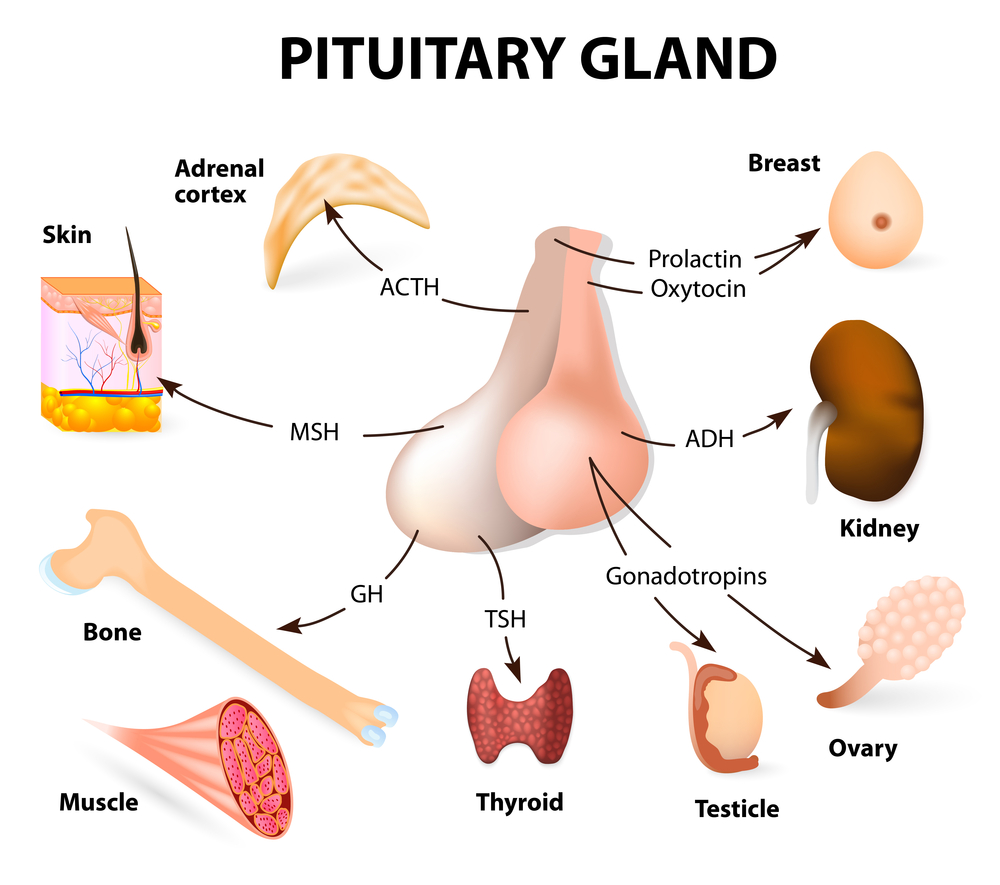
One of the many roles of your pituitary gland is to secret GH, or growth hormone.
With the explosion of the anti-aging industry, it’s become well-known that hormones play a massive role in how you look, feel, your body fat composition, skin health and much more. Unfortunately, that has led to the rise of many different hormone supplements and therapies — with growth hormone and testosterone being two of the most popular.
Human growth hormone (HGH) is a hormone secreted by the pituitary gland, which is believed to play a major role in many different health and anti-aging functions in the body. Its levels are often said to be highest following deep sleep and exercise, playing a key role in the rejuvenation and repair processes of the body.
While I believe we should do everything to naturally maximize our body’s growth hormone output, are numerous problems with injecting or supplementing in order to increase it. While those who are deficient may see a benefit for such treatment, but often at a significant cost. According to a Harvard summary of findings, up to 30% of patients experience fluid retention, joint pain, muscle pain and elevated blood sugar levels. [5]
What’s more, there have been studies that call into question is ultimate aid in athletic or anti-aging performance. When a team of California researchers analyzed the results of 44 studies involving growth hormone and performance, they found that the injections did increase muscle mass, but did not improve endurance, strength or any other key performance metric. This led them to believe that all the growth hormone really did was increase water weight inside the muscles — certainly not worth the incredible expense or risk of such therapy! [6]
Another risky hormone therapy is one many women are familiar with — progesterone. It’s often recommended for women who experience symptoms of menopause, including fatigue, low mood and hot flashes. But the studies that have looked at whether it mitigated symptoms of hot flashes have not been promising and showed little benefit. Also, there are a variety of potential side effects — including headaches, increased fatigue, menstrual changes, difficulty breathing, vertigo and more.
And this is not even considering the fact that when you supplement with any hormone, whether it be growth hormone, testosterone, progesterone or others — you risk lowering your body’s own natural production, making you progressively more dependent on the treatment, and your body’s endocrine system less healthy and capable.
Ultimately, the best thing for optimizing many hormones — including both growth hormone and progesterone — is to reduce stress and balance your overall lifestyle, including sleep. Stress, which triggers cortisol, has been shown to affect progesterone levels adversely, since both hormones compete for some of the same receptor sites. [7] Similarly, one of the best things you could ever do for your growth hormone levels is to reduce stress and simply get more high quality sleep. [8]
Offender #3: Fat Burners
Over the years, there has been an explosion of fat burning supplements — including massively popular ones like Hydroxycut. The supplements typically work by heating up the body, artificially stimulating something called thermogenesis, while also typically providing a high dose caffeine to increase heart rate and energy. Some popular fat burners have previously contained a substance called ephedrine — which is a stimulant that works by increasing your heart rate and blood pressure. It was banned by the FDA after some deaths resulted from its use (though the ban was strangely lifted this year.)
The problems with these fat burning supplements are almost too numerous to list. I’ve spoken at length about the problems with caffeine in the past, but let’s just say that mega-dosing on caffeine each day in order to increase your heart rate and metabolism is going to wreak havoc on your adrenals and in the long run, increase cortisol, which actually makes you fat.
Another big problem with these fat burners is that they have a strong, unnatural diuretic affect. Of course, some diuretics can be good — I write at length about healthy diuretics in an upcoming free course we are sending you — but in the case of these fat burners, it’s not healthy. The caffeine and other additives flush water out of your body at such an aggressive rate (in order to help you look more “ripped”) — getting properly hydrated while taking them is virtually impossible.
Last but not least, according to researchers at Vanderbilt University, they often create anxiety and insomnia. [9] Are you starting to see the problem here? In attempting to aggressively lose fat with such products, you would actually be doing all the things that would actually MAKE you fat in the long run! Reduced sleep, stress, anxiety, cortisol, and more all cause your body to store fat — even if there seems to be a benefit in the short run. Do not be fooled by them.
Offender #4: Fish Oil and Animal Derivatives
Another so-called miracle panacea is Fish Oil, and I’ve written at length about the problems with Fish Oil in the past. While there are some studies in support of specific forms of fish oil, recent studies have emerged to question some of the most widely held benefits of this supplement. Specifically, researchers from Cambridge found that fish oil consumption produced no significant effect on coronary heart disease levels.
That’s only the beginning of the issues. Earlier this year the New York Times published a detailed expose which revealed how many fish oil supplements are mislabeled, not containing the amount of omega 3 fatty acids they claim. [10] Of course, fish oil has become a massive business, with $1.2 billion sold last year, making them the most popular supplement sold in the United States and perhaps worldwide.
I think it’s also worth noting that Udo Erasmus, perhaps the world’s leading expert on fats, is NOT in favor of fish oil and recommends flax and/or vegan DHA sources in order to meet your body’s Omega-3 needs. He claims that fish oil supplements are often rancid or contaminated, containing mercury and PCB’s, thus doing more harm than good. Despite the scare tactics used by the industry — his research shows that your body does a fine job of converting plant-based Omega-3 oils like flax, hemp and chia into essential brain fats, including DHA and EPA. [11] But if you do want to take DHA/EPA for extra insurance- you can get it right from the source itself…algae! That is where the fish get these fats from, in consuming the algae. So for supplementation you can go right to the primary source, to algae-based DHA/EPA.
Overall, I would avoid taking animal-derived supplements of any kind — including those like “glandulars” — for reasons similar to what we see with fish oil. It’s hard enough to control quality and maintain shelf-life with plant derived products, and it’s easy to imagine quite a bit of degradation over time. I know desiccated thyroid or adrenals from cows have become popular, but apart from being gross, there has been no real research or evidence to support them.
Offender #5: Isolated Vitamin B
This is another problematic one, in part for reasons we explained at the outset of this post. Namely, that synthetic vitamins often either don’t work, or come at a significant price. Many versions of vitamin B supplements are indeed synthetic, though I have a bone to pick with some of the natural ones as well, for different reasons.
In nature, vitamin B exists in a complex — meaning it comes packaged with other B vitamins and co-factors that your body recognizes and knows how to deal with. This is true for any B vitamin-rich food, whether it’s nutritional yeast, bee pollen or anything else.
The problem is, due to our fixation on single nutrients and the marketing that goes with them, many products have parsed vitamin B down to single forms. This includes Biotin, B6, Folic Acid and the many others. (B12 is the one exception, since it is so important, but even then a good B12 supplement would have the appropriate natural co-factors.) Not only have these isolated forms of vitamin B never been properly studied or proven, it’s easy see how taking one could distort your overall B vitamin balance and lead to adverse effects.
This is a big issue I have with so many of the fortified foods and cereals — they add a bunch of synthetic vitamins based on the RDA value, however, that in no way takes into account your body or its current needs. Ultimately, like all the problematic substances we’ve discussed in this post, isolated B vitamins are best to be avoided. Instead, focus on B vitamin-rich foods, of which there are an abundance and many that I profile in detail inside The Beauty Detox Foods.
Conclusion – Trust the Wholeness of Nature
I hope this post has helped open your eyes to the fact that “more is not better” – whether it be a manufactured vitamin, a “hormone enhancer” or a fat burner.
Synthetic vitamins clearly play no role in the diet of anyone who wants optimum health and wellness. And certainly not mega-dosing them, something we would never be able to do in nature.
At the same time, we learned that quick-fix attempts to reduce aging with growth hormone and other such treatments, or lose weight with fat burners are not only counterproductive in the long run — they’re also potentially dangerous in the short run. Same with fish oil and isolated nutrients so often used in supplements and fortified foods — there is no such thing as a free lunch.
And that, my love, is a really point to take away from all this: when you trust nature AND whole food nutrition, you get the upside of incredible nutrition — without any of the downsides. Some supplements are great- but you don’t need a truckload of them.
It’s only when, like Icarus from Greek mythology, we try to fly too high – wanting the ultra-fast, unnatural results in the shortest possible time — that we end up getting burned.
Have an amazing rest of your week, and stay tuned for more great info coming your way, right here.
Love,
Kimberly
Research Citations:
[1] https://www.ncbi.nlm.nih.gov/pubmed/11700812 [2] https://ajcn.nutrition.org/content/87/1/142.abstract [3] https://www.ncbi.nlm.nih.gov/pubmed/1516192 [4] https://www.webmd.com/vitamins-and-supplements/news/20131216/experts-dont-waste-your-money-on-multivitamins [5] https://www.health.harvard.edu/newsletters/Harvard_Mens_Health_Watch/2010/May/growth-hormone-athletic-performance-and-aging [6] https://www.ncbi.nlm.nih.gov/pubmed/18347346 [7] https://www.ncbi.nlm.nih.gov/pubmed/15368600 [8] https://www.ncbi.nlm.nih.gov/pmc/articles/PMC297368/ [9] https://www.livestrong.com/article/171610-harmful-effects-of-fat-burners/ [10] https://well.blogs.nytimes.com/2014/01/22/whats-in-your-fish-oil-supplements [11] https://www.udoerasmus.com/articles/udo/fish_oil.htm


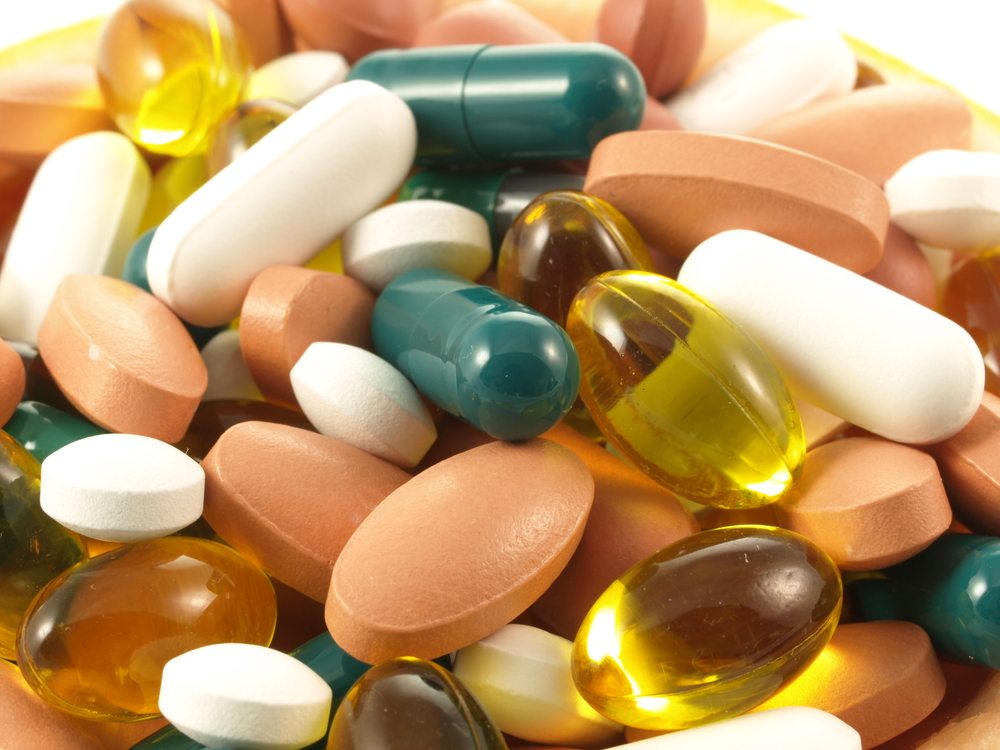

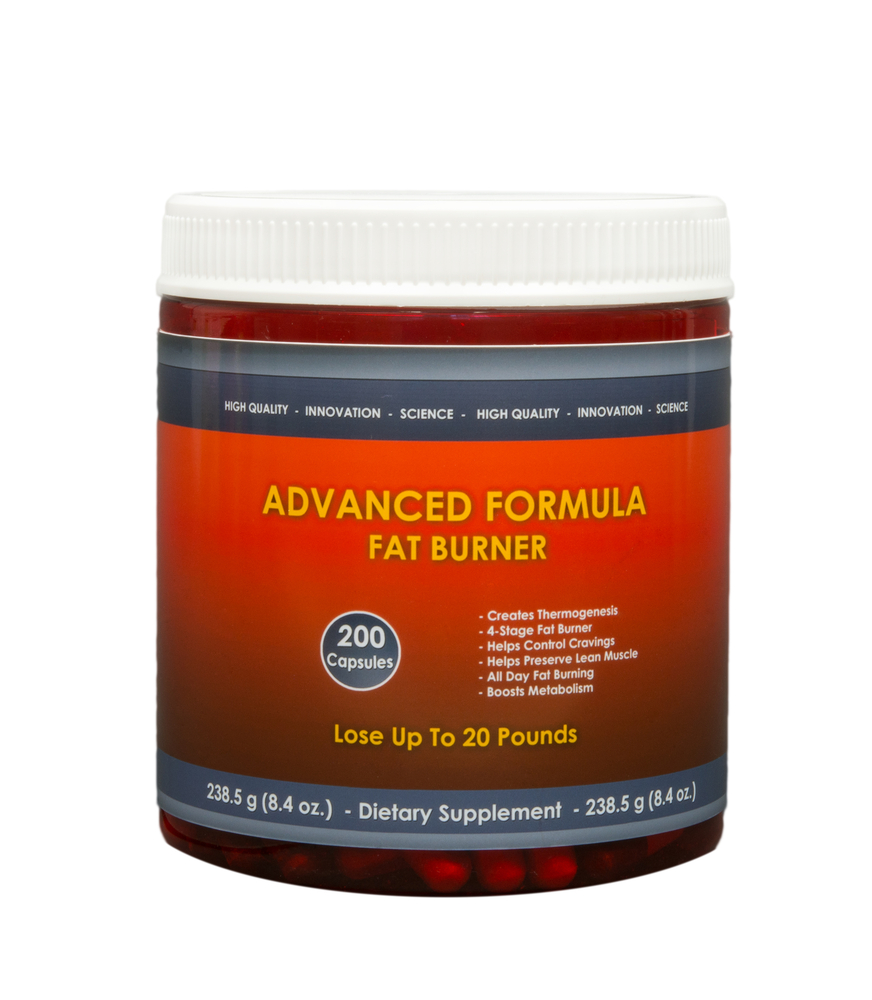
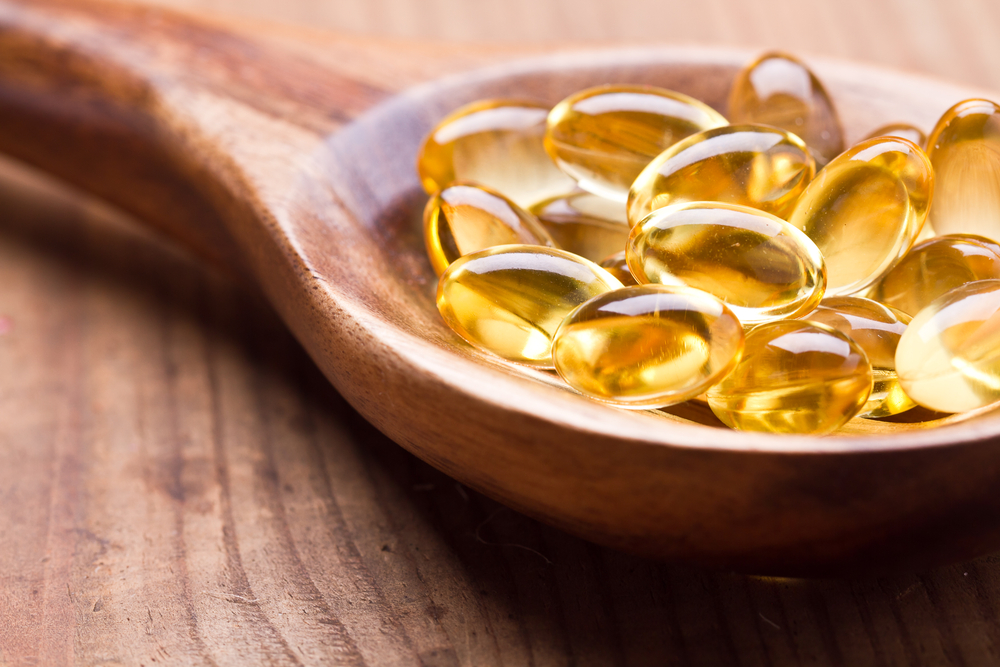
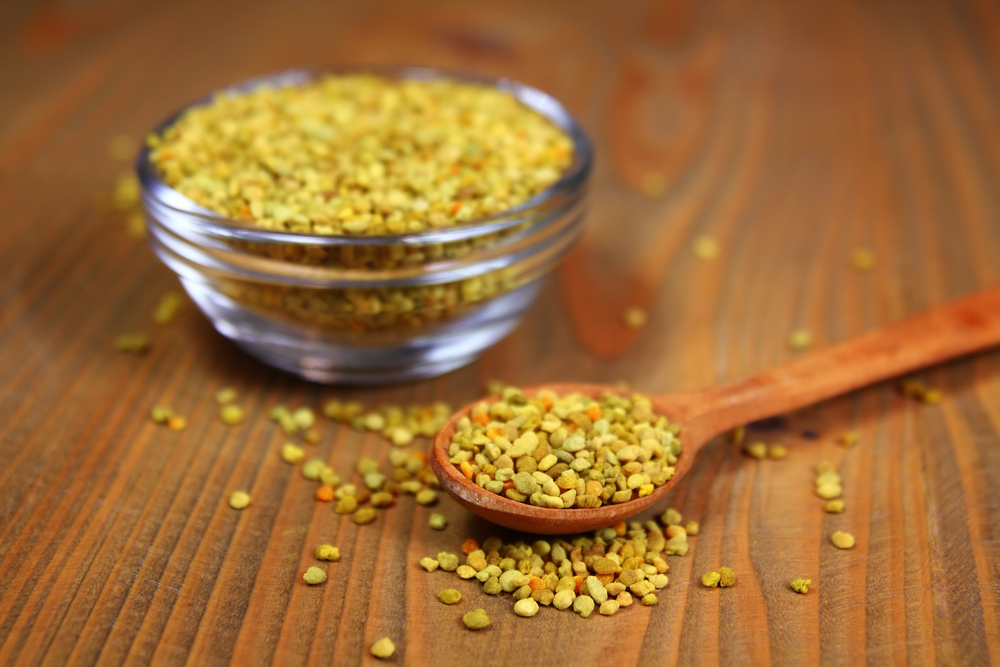


This makes a lot of sense.
Hi Kim
When will you be shipping your probiotics to Australia? I cant wait!!
xx
Hi Kimberly, thank you for your post, I love all of your blogposts and I learned so much from you already!! You are truly an inspiration, and eating your way made my life so much better.
You say somewhere else (and also here) that you do recommend taking B12 and also Vitamin D. Do you have a recommendation for a good brand for both?
(unfortunately I can not buy from your shop, I need something that ships to Europe).
Thank you very much!!
Jenny
Usually I would agree with you and I actually do agree that this holds true for healthy people. Unfortunately not everybody is healthy. In a case of autoimmune diseases, you need to take high-quality supplements like fish-oil or vitamins in order to calm down your autoimmune attack. The explanation is that autoimmune patients cannot absorb all beneficial minerals and vitamins from food, since they usually have seriously impaired digestion. I’m not going to go into long discussions, just want to make sure that other autoimmune patients out there don’t read this thinking “Omg and I’ve been taking vitamin D for nothing??”. It’s not for nothing and no, you cannot get it all from food. At least not until you’ve healed your gut.
Hello,
Thank you for all you do. I just want to share that there are a lot of young women who have had early hysterectomies for lots of reasons and bio identical hormones have been a true benefit. May the sun continue to shine on you.
I agree with some of what you are saying. However, you have left out studies done on high quality,potency guaranteed supplements. Articles such as this one give “all” supplements a bad reputation. People need to do their own research just as you would before taking a script. (which will usually cause more health issues than any supplement) There are some fabulous whole food and clean supplements if you know who has manufactured them. Also, just because you buy a supplement from a store with the name “whole” or “health”, doesn’t make it good for you…for your readers. thanks for listening & offering conversation on this topic.
Hi
Could you please suggest a good brand of B12 supplements?
Do you take yours daily throughout the year?
Thank you
What is your opinion of systemic enzyme supplements for inflammation?
Could you guys do an article on Prostate health ? Thank you so much and please keep up the great work.
I enjoyed reading this post. But you’ve mentioned before that if a person follows a vegan diet, they need to be getting enough vitamin b-12. Is there any b-12 supplement that you’d be able to recommend? I want to make sure my husband & I are getting enough since we’ve been eliminating most meat from our diet. Thankyou for any help in this regard.
sincerely,
Lydia stemen
I like the rainbow light brand multivitamin for women; it is made from whole food sources and has the necessary compounds to make the vitamins more readily absorbable. There is another whole foods based vitamin by garden of life, too.
I read this post completely concerning the comparison of most up-to-date and
preceding technologies, it’s remarkable article.
Thank you for your great feedback and sending lots of love! ;)